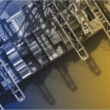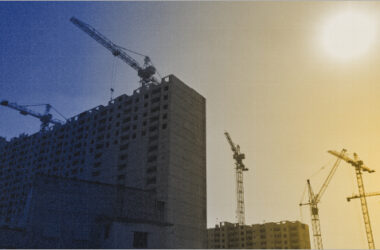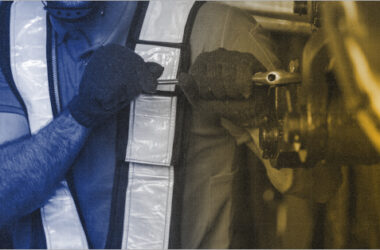In the domain of construction, where uncertainties abound, safeguarding your investments and ensuring financial security is paramount. Contractors All Risk Insurance (CAR Insurance) is a specialised policy designed to address the unique risks faced by the construction industry. In India, where infrastructure development is a cornerstone of economic growth, CAR Insurance plays a pivotal role in protecting contractors, developers and other stakeholders from unforeseen losses.
This blog explores the intricacies of Contractors All Risk Insurance in India, covering its features, benefits, coverage and importance in construction projects.
Understanding Contractors All Risk Insurance
CAR Insurance is a comprehensive policy that provides coverage for loss or damage to construction works, materials, equipment and third-party liabilities. It is specifically tailored for construction projects and is typically purchased by contractors, project owners or developers. The CAR Insurance Policy covers a wide range of risks, from natural disasters to human errors, ensuring that construction projects can proceed without significant financial setbacks in the event of an unforeseen incident.
Key Features of CAR Insurance
- Comprehensive Coverage: CAR Insurance offers extensive protection, covering property damage and third-party liabilities.
- Customisable Policy: The CAR Insurance Policy can be tailored to suit the specific needs of a project, ensuring adequate coverage for all involved parties.
- Dual Coverage: The Contractors All Risk policy is typically divided into two sections:
- Material Damage: Covers physical loss or damage to construction works, equipment and materials.
- Third-Party Liability: Covers legal liabilities arising from injury or property damage to third parties during the construction process.
- Flexibility: The CAR Insurance Policy duration aligns with the project timeline and coverage can be extended as needed.
Scope of Coverage in Contractors All Risk Insurance
CAR Insurance provides extensive protection against various risks associated with construction activities. Key areas of coverage include:
1. Material Damage
This section of the CAR Insurance Policy covers:
- Accidental Damage: Protection against unforeseen incidents such as fire, explosions, explosions or impacts.
- Natural Disasters: Coverage for damages to the construction site caused by earthquakes, floods, storms, inundation, rockslides or landslides.
- Loss or property damage due to theft, burglary, riots/terrorism, strikes or malicious acts.
- Testing or commissioning risks
- Collapse of structure during construction
2. Third-Party Liability
Third-party liability coverage protects the insured against legal liabilities arising from:
- Injuries to Third Parties: Compensation for bodily injuries or fatalities caused to third parties due to construction activities.
- Property Damage: Reimbursement for damages caused to third-party property during the project.
- Legal Costs: Coverage for legal expenses incurred in defending claims made by third parties, subject to the terms and conditions of the policy.
3. Additional CAR Insurance Coverages
Many insurers offer optional extensions to enhance the scope of the CAR Insurance Policy. These may include:
- Coverage for construction plant and machinery.
- Escalation costs due to price inflation of construction materials.
- Debris removal expenses.
- Architect’s and consultant’s fees.
- Off-site storage
- Delay in start-up (DSU) or advance loss of profit (ALOP) as a separate policy.
Exclusions in Contractors All Risk Insurance
While CAR Insurance provides extensive coverage, there are several exclusions—situations or events for which the policy does not provide coverage. These include:
- Pre-existing Damage: Loss or damage to property that existed before the policy commencement date.
- Defective Design or Workmanship: Loss or damage caused due to faulty design, materials or poor workmanship. However, consequential damage may be covered.
- Wilful Misconduct: Damage or loss resulting from deliberate acts or gross negligence by the insured or their representatives.
- Wear and Tear: Gradual deterioration or damage due to normal usage.
- Latent Defects: Hidden defects in materials or construction that were not visible or known at the time of policy issuance.
- Contractual Penalties: Liabilities arising solely from contractual obligations.
- War: Damage caused by war, invasion or acts of foreign enemies unless specifically covered.
- Nuclear Risks: Damage arising from nuclear reactions, radiation or contamination.
- Pollution and Contamination: Damage caused by pollution or contamination unless resulting from a sudden and accidental event.
- Consequential Losses: Indirect losses such as delay penalties or financial losses due to project delays.
- Mechanical or Electrical Breakdown: Loss or damage to machinery or equipment due to internal breakdown or malfunction.
- Inventory Losses: Losses due to inventory shortages unless resulting from a covered peril.
- Transit Damage: Loss or damage during material transportation is not covered unless the policy is specifically extended for transit coverage.
- Unapproved Modifications: Changes or alterations to the project that increase risk and are not reported to the insurer may affect coverage.
- Non-compliance with Regulations: Loss or damage resulting from failure to adhere to legal or regulatory standards.
- Injury to Employees: Injuries to workers or employees, which may instead be covered under a workers’ compensation policy.
- Motor Vehicle Liability: Liability arising from the use of vehicles licensed for general road use is excluded and must be covered under separate motor insurance policies.
Note: Many exclusions can be addressed through endorsements or additional coverage options, which may be purchased for an additional premium. Always review the specific terms and conditions of the policy carefully.
Importance of CAR Insurance Policy in India
The Indian construction industry is vast and diverse, involving projects of varying scales and complexities. With the Government’s push for infrastructure development, such as highways, metro systems, smart cities and housing projects, the stakes are high for contractors and developers. CAR Insurance becomes indispensable for the following reasons:
1. Protection Against Uncertainties
Construction projects face risks such as natural disasters, accidents and theft. CAR Insurance ensures that unexpected incidents do not derail the project financially.
2. Compliance with Regulatory Requirements
In many cases, CAR Insurance may be required by project owners or government authorities as part of contract requirements.
3. Financial Security
CAR Insurance provides financial protection against covered losses, ensuring business continuity while subject to policy terms, conditions and exclusions.
4. Enhanced Credibility
Having a CAR Insurance Policy in place boosts the credibility of contractors and developers, fostering trust among clients, investors and stakeholders.
5. Coverage for Third-Party Liabilities
Construction activities often impact third parties, including neighbouring properties and individuals. CAR Insurance ensures such liabilities are adequately addressed, preventing potential legal disputes.
Choosing the Right Contractors All Risk Insurance Policy
1. Assess Project Needs
Evaluate the nature and scale of the construction project to determine the extent of coverage required. Consider additional coverages if necessary.
2. Compare Policies
Compare offerings from multiple insurers, considering premium costs, coverage limits, exclusions, deductibles and claim settlement processes.
3. Consult Experts
Seek advice from insurance advisors or brokers to identify the best CAR Insurance policy tailored to your specific requirements.
4. Review Policy Terms
Thoroughly review the policy documents to understand the terms, conditions and exclusions before making a decision.
Final Thoughts
Contractors All Risk Insurance is a vital instrument for managing risks in the construction industry. In India, where infrastructure development is integral to economic progress, CAR Insurance ensures the smooth execution of projects by providing financial security against unforeseen events.
Investing in the right CAR Insurance Policy is a strategic move to safeguard your business interests and ensure the successful completion of your construction project.








